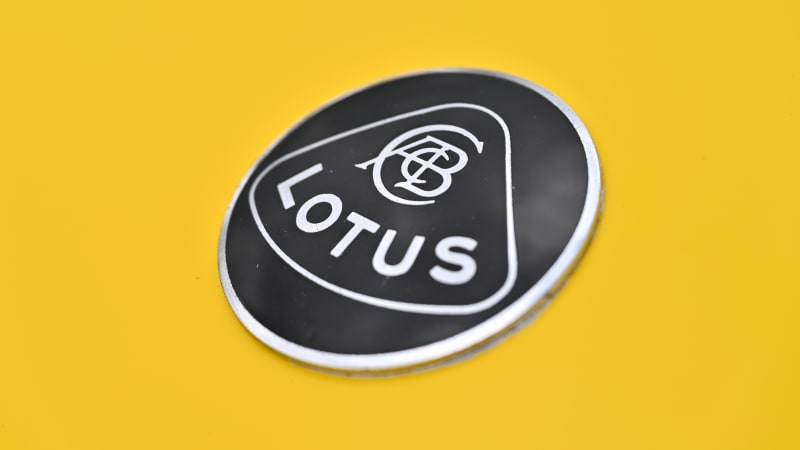Why Lotus thinks its luxury EV game plan will succeed globally

Luxury sports car and EV maker Lotus completed its SPAC merger last week in the U.S. and its stock was publicly traded for the first time on Friday. It’s an interesting turn of events for the Geely-backed automaker now known as Lotus Tech given the uncertain EV market, but one that may prove an exception to the struggles of other pure-play EV makers.
Trading under the ticker LOT on the Nasdaq, Lotus Tech will focus on the higher end of the EV market with its Eletre SUV and Emeya sedan, which will not only be offered in the US but also in Europe and, more importantly, China.
“What is most important here is that we are definitely going to more markets at the same time through more models and through more stores,” said Lotus Tech CFO Alexious Lee to Yahoo Finance from the Nasdaq market site.
By the end of the year Lotus will have four vehicles in production, three of them EVs. “These four models are currently available in Asia Pacific and part of it is also available in UK and EU,” Lee said. “We’re having the new [Eletre] SUV model coming into the U.S. in the third quarter of this year, so different markets have different strategies and different product offerings and different conditions.”
Lotus is able to go to market in a number of territories due to the backing of its majority owner, Chinese auto giant Geely. But it also raised a considerable amount of money through its SPAC merger. Lotus Tech said it raised more than $880 million in pre-closing and PIPE financing commitments, with a targeted valuation on listing day of nearly $7 billion.
Lotus Tech also had an interesting partner with its SPAC merging, combining with L Catterton Asia Acquisition Corp (LCAA), which is backed by French luxury conglomerate LVMH.
As Lotus targets the luxury segment with its vehicles — the Eletre and Emeya will be playing in the $80,000 to $150,000 ballpark — having a partner like LVMH, with its deep connections and insights into the luxury consumer, could be hugely beneficial.
“Now what is more important here is Anish Melwani, who is the CEO for LVMH North America, will be on the board of Lotus Tech,” Lee said. “This is a huge opportunity for us to develop a potential partnership in terms of co-branding, co-marketing, and others in a way to help Lotus execute a strategy and develop our full potential in the fast-growing, underserved EV luxury segment market.”
While the LVMH partnership is a nice feather in the cap for Lotus, competitors such as Mercedes, BMW, and Polestar would beg to differ that the global luxury EV market is underserved. One thing for sure, however, is that these legacy brands are pulling back investments and rollout of their EV plans while Lotus is going full bore.
Plus, Lee sees the luxury segment actually growing over the next decade.
“If I look at Oliver Wyman’s research, you’ll see that this particular segment [$80,000-$150,000] is the biggest volume contributor in the whole luxury space. At the same time, it’s very underserved,” Lee said. “Now, based on this market research, this particular segment is gonna grow about 35% CAGR [compound annual growth rate] for the next 10 years.”
With a strategy tailored to the high-end luxury market, financial backing by China’s Geely, and a new partner in LVMH with its SPAC merger, Lee believes Lotus is set up for success. The big question is whether Lotus’s pricey luxury offerings will resonate with high-end buyers.
Pras Subramanian is a reporter for Yahoo Finance. You can follow him on Twitter and on Instagram.
Click here for the latest stock market news and in-depth analysis, including events that move stocks
Read the latest financial and business news from Yahoo Finance







